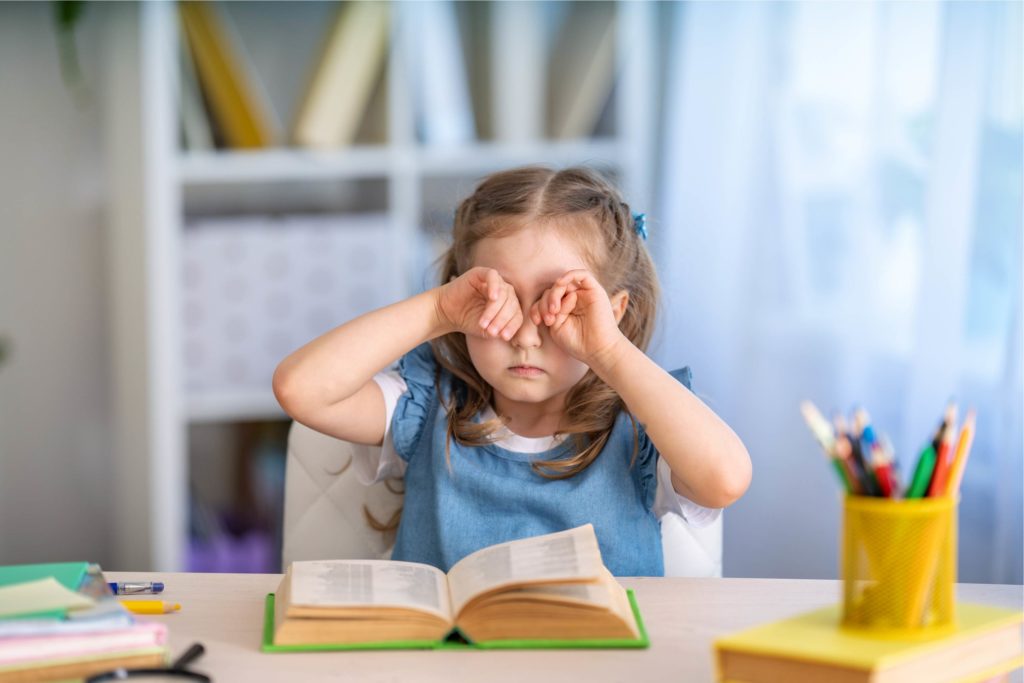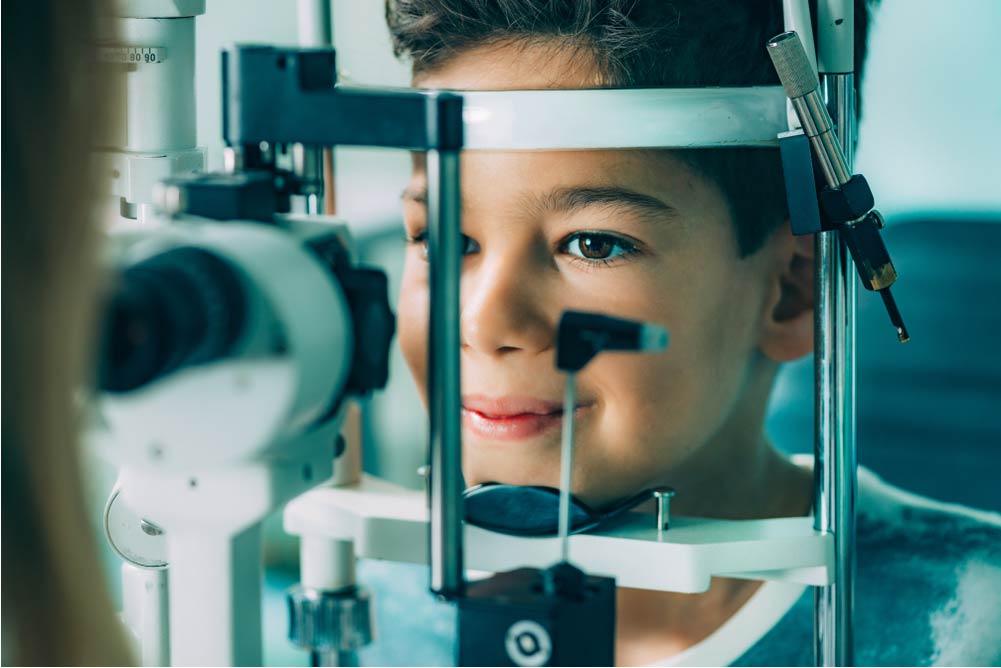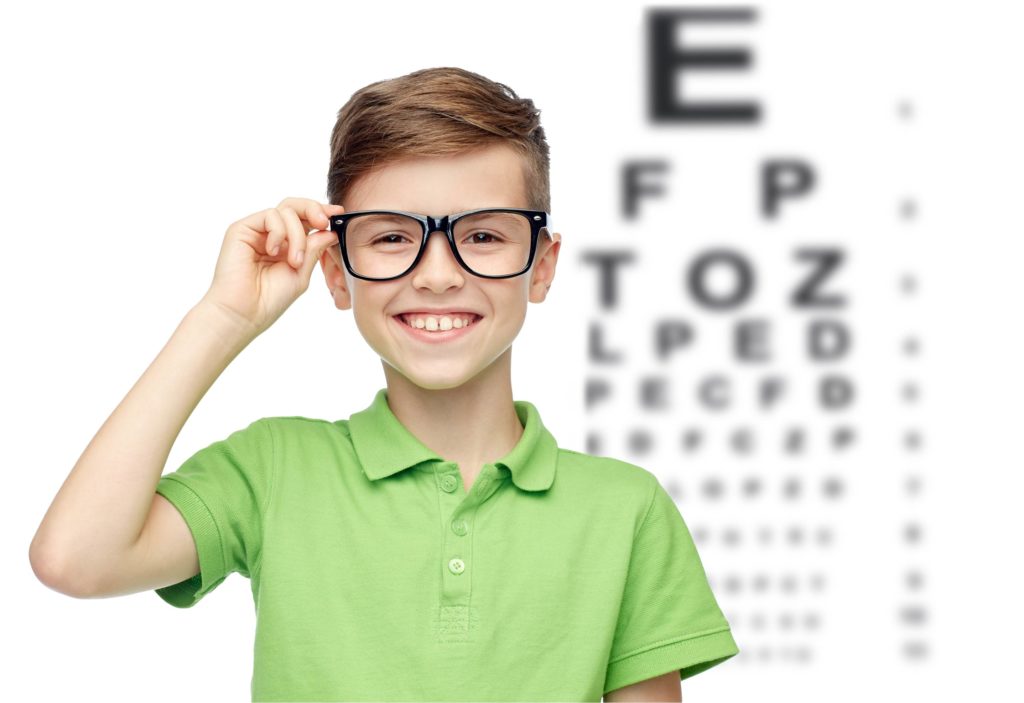Keeping a check on your child’s eye health is very important. Regular eye exams are required to make sure that your child is not suffering from any vision problems. Many times, undiagnosed eye issues can lead to poor school performance. Here are some vision problems that are common among children:
- Myopia (nearsightedness): Myopia or nearsightedness is a common eye condition that makes it harder to look at objects that are at distance. Myopia is very common in children between ages 6 and 14. Some common signs that you should look for are excessive blinking and rubbing of eyes, sitting too close to the television or computer screen, looking at objects very closely etc. Click on the button below to read more about myopia.
- Hyperopia (farsightedness): Hyperopia or farsightedness makes is harder to look at objects that are closer to you. Some symptoms to look for in your child are difficulty reading, eye strain, squinting, headaches and finding it difficult to focus on objects that are nearby.
Myopia and hyperopia can both be fixed by corrective glasses or contact lenses. Book your child’s appointment with our LMC Optometrist today!
- Amblyopia (lazy eye): This occurs when one of the eyes does not develop properly and the brain is not able to process sight from that eye. Your child may complain about double vision if they have lazy eye.
- Some other eye problems that children can have are pediatric glaucoma, pediatric cataract, cortical visual impairments, and other eye related developmental abnormalities.
Common signs to look out for

Here are some symptoms that you should look out for that might be a sign of your child suffering from vision problems:
- Eye squinting
- Short attention span
- Holding objects or reading materials close to the face
- Difficulty in eye and hand coordination and movement
- Excessive eye rubbing or blinking
- Difficulty reading
- Double vision
Why are vision skills important?
Having clear vision is important for children and their academic success. Here are some vision skills that are essential for you child:
- Eye-hand coordination: It is important for your child to take in visual information and learn to coordinate their motor skills with it. This is useful for learning how to draw, write or kick a ball when they are out playing in the playground.
- Visual acuity: Whether it’s looking at a chalkboard, reading a book or using a computer, it is important for your child to have the visual acuity to perform all these tasks in an academic environment.
- Visual perception: this is important so that your child can take in visual information and learn to put meaning behind letters, words, sentences, and objects.
- Depth perception: it’s important for your child to be able to use their eyes’ ability to differentiate between distance of different objects.
- Retention: An important component of memory and recognition is vision. If your child has visual acuity, then they will be able to remember and recognize academic material better.
Your child’s eye exam

Did you know that an infant should have an eye examination by the time they reach 6 months? As a child grows into their pre-school years a thorough eye examination is recommended between the ages of 3 – 5. Thereafter, children should see their eye doctor on a yearly basis. Click on the button below to book your appointment.
We want your child to have the perfect vision so that they can do well in school and have an optimal learning experience. It is important to keep an eye on your child’s vision health as most vision related problems can be fixed if detected at an early stage. At LMC Optometry, we offer special eye frame packages for children. Click the button below to explore our promotions.



